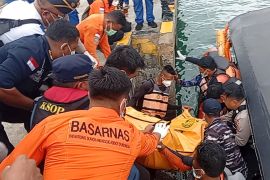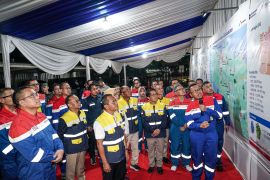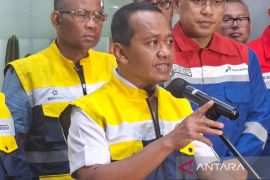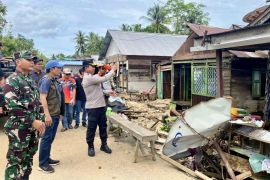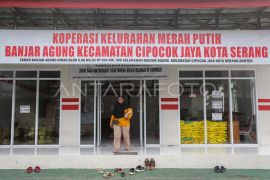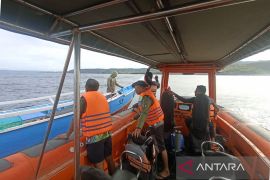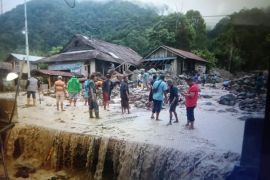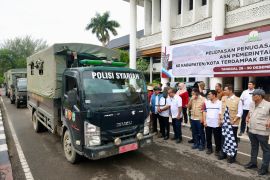The declaration was released following the conclusion of the meeting hosted by US President Barack Obama.
Indonesian Foreign Minister Retno L.P. Marsudi stated that the meeting had produced a US-ASEAN Joint Statement.
"There is a joint statement issued by the United States and the Association of Southeast Asian Nations (ASEAN)," she said.
During the summit, leaders of the United States and ASEAN reaffirmed the key principles that will be used to carry forward their cooperation.
The 17 key principles mentioned in the joint statement are included in the Sunnylands Declaration.
They include:
1. Mutual respect for the sovereignty, territorial integrity, equality, and political independence of all nations by firmly upholding the principles and purposes of the Charter of the United Nations, the ASEAN Charter, and international law;
2. The importance of shared prosperity, sustainable, inclusive economic growth and development, and the nurturing of our young people to sustain continued peace, development, and stability for mutual benefit;
3. Mutual recognition of the importance of pursuing policies that lead to dynamic, open, and competitive economies that foster economic growth, job creation, innovation, entrepreneurship, and connectivity, and that support SMEs and narrow the development gap;
4. Our commitment to ensuring opportunities for all our people, through strengthening democracy, enhancing good governance and adherence to the rule of law, promoting and protecting human rights and fundamental freedom, encouraging the promotion of tolerance and moderation, and protecting the environment;
5. Respect and support for ASEAN Centrality and ASEAN-led mechanisms in the evolving regional architecture of the Asia-Pacific;
6. Firm adherence to a rules-based regional and international order that upholds and protects the rights and privileges of all states;
7. Shared commitment to seeking a peaceful resolution to disputes, including full respect for legal and diplomatic processes, without resorting to the use of threat or force in accordance with the universally recognized principles of international law and the 1982 United Nations Convention of the Law of the Sea (UNCLOS);
8. Shared commitment to maintaining peace, security, and stability in the region, ensuring maritime security and safety, including the rights of freedom of navigation and overflight and other lawful uses of the seas, and unimpeded lawful maritime commerce as described in the 1982 UNCLOS as well as non-militarization and self-restraint in the conduct of activities;
9. Shared commitment to promoting cooperation to address common challenges in the maritime domain;
10. Strong resolve to lead on global issues such as terrorism and violent extremism, human trafficking, drug trafficking, and illegal, unreported, and unregulated fishing, as well as illicit trafficking of wildlife and timber;
11. Shared commitment to addressing climate change and developing a climate-resilient, environmentally sustainable ASEAN, as well as implementing individual countries nationally determined contributions made under the Paris Climate Agreement;
12. Shared commitment to promoting security and stability in cyberspace consistent with the norms of responsible state behavior;
13. Support for the advancement of a strong, stable, politically cohesive, economically integrated, socially responsible, people-oriented, people-centered, and rules-based ASEAN Community;
14.Shared commitment to strengthening people-to-people connectivity through programs that engage ASEAN and American citizens, particularly young people, and that promote opportunities for all our people, particularly the most vulnerable, to fulfill the vision of the ASEAN Community;
15. Shared commitment to promoting a global partnership for sustainable development through the implementation of the 2030 Agenda for Sustainable Development and the Addis Ababa Action Agenda to ensure a sustainable, equitable, and inclusive society where no one is left behind;
16. Shared commitment to enhancing collaboration at the international and regional fora, especially at existing ASEAN-led mechanisms; and
17. Shared commitment to continuing political dialog at the head of state/government level through our leaders attendance at the annual US-ASEAN Summit and the East Asia Summit.(*)
Editor: Heru Purwanto
Copyright © ANTARA 2016
